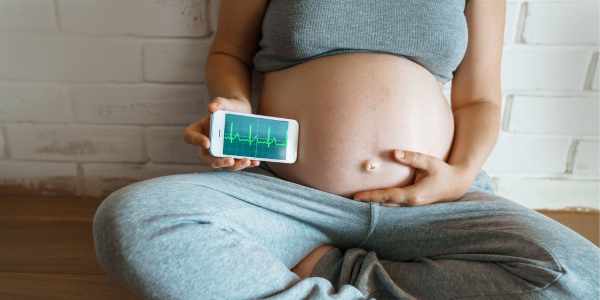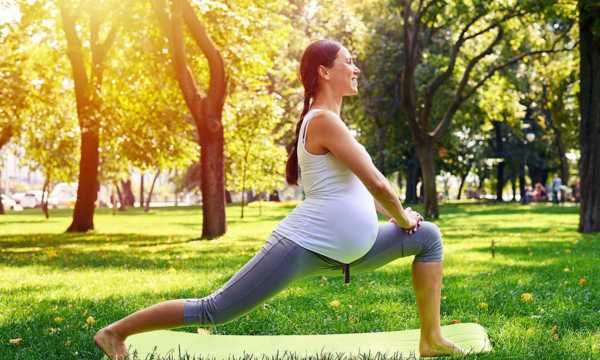In recent years, it has become increasingly common for women to choose to postpone motherhood and become pregnant after the age of 35.
Ad
This phenomenon is associated with a series of social, economic, and personal changes that influence women’s reproductive decisions.
Getting pregnant at this age, however, can bring unique challenges and requires special care to ensure a healthy pregnancy and a healthy baby.
Understanding Age-related Fertility
One of the main considerations when planning a pregnancy after the age of 35 is understanding how age affects female fertility.
Ad
Unlike men, whose fertility remains relatively stable over the years, women experience a gradual decline in the quality and quantity of eggs as they age.
The peak of female fertility typically occurs in the late teens and throughout the twenties. After 35, this reproductive capacity begins to decline more significantly.
This is because women are born with a fixed number of eggs in their ovaries, and this supply diminishes over time. Additionally, the remaining eggs tend to have more abnormal chromosomes, increasing the risk of complications during pregnancy.
This decrease in egg quality and quantity can make conception more challenging after the age of 35.
Women who wish to become pregnant at this age should be aware of these changes and seek medical guidance to assess their fertility and discuss options.
Pre-pregnancy Health Care
Before attempting to conceive after the age of 35, it is crucial to take steps to optimize pre-pregnancy health.
A healthy lifestyle plays a fundamental role in preparing for a successful pregnancy. Here are some important tips:
- Healthy Eating: Prioritize a diet rich in fruits, vegetables, whole grains, and lean proteins. Consume foods that are sources of essential vitamins and minerals for reproductive health, such as calcium, iron, and folic acid.
- Regular Exercise: Maintaining an active lifestyle can help maintain a healthy weight, improve blood circulation, and promote overall health. Choose physical activities suitable for your fitness level, such as walking, swimming, or yoga.
- Proper Supplementation: Folic acid is essential for preventing neural tube defects in the fetus. Start taking prenatal vitamins, including folic acid, before conceiving to ensure a healthy pregnancy.
- Maintain a Healthy Weight: Excess weight or low weight can affect fertility and increase the risk of complications during pregnancy. Maintain a balanced diet and engage in regular physical exercise to achieve a healthy weight.
The Importance of Medical Monitoring
Women planning to conceive after the age of 35 should seek appropriate medical guidance. An obstetrician or gynecologist can conduct a comprehensive assessment of reproductive health and discuss potential challenges and risks associated with advanced maternal age.
During pre-pregnancy medical monitoring, tests can be performed to assess overall health, ovarian function, and egg reserve.
This information will help determine the best approach to conception and identify any health issues that need to be addressed before pregnancy.
Additionally, the doctor can provide specific guidance based on the woman’s age and medical history. This may include genetic counseling to assess the risk of chromosomal abnormalities in the fetus and discuss treatment options if necessary.
Planning and Future Options
For women who wish to delay pregnancy beyond the age of 35, egg freezing is a viable option. This technique allows the preservation of young and healthy eggs for future use when the woman is ready to start a family.
Egg freezing offers flexibility and peace of mind, especially for those who wish to focus on other areas of life before committing to motherhood. Discuss egg freezing with a fertility specialist to determine the best timing for this procedure.
Mature Motherhood: Emotional Advantages and Life Stability
Getting pregnant after the age of 35 isn’t just about the commonly discussed medical challenges. Many women in this age group experience significant emotional benefits when entering motherhood more consciously and with a stronger foundation.
Over time, women tend to develop greater emotional maturity and self-awareness. This allows them to approach pregnancy, parenting, and lifestyle changes with more calm and confidence.
Decisions are often made with deeper reflection and purpose, contributing to a more stable and nurturing family environment.
Another positive factor is the increased financial and professional stability often achieved by women who postponed motherhood to focus on education, careers, or personal goals.
This stability allows for more peaceful planning from preparing the baby’s room to choosing the right school reducing concerns about economic issues.
Additionally, many women report that later motherhood brings greater confidence, as they have already experienced a variety of life situations. This strengthens their ability to handle the natural challenges of pregnancy and parenting with empathy, balance, and wisdom.
So, while there are unique aspects to pregnancy after 35, it can also be an opportunity to experience motherhood with more clarity, purpose, and emotional fulfillment.
Support Network and Well-Being: How the Right Help Makes a Difference
During pregnancy especially after age 35 having a solid support network makes a significant difference in both physical and emotional well-being. Being able to share doubts, joys, and challenges with others creates a lighter and safer experience for the expecting mother.
This support network can include a partner, family members, close friends, and, of course, healthcare professionals. A welcoming and cooperative environment helps reduce stress, increase the feeling of security, and promote a more balanced pregnancy.
From a medical standpoint, consistent follow-ups with an obstetrician, nutritionist, and, if necessary, a psychologist are essential for early detection of any health needs and preventive care. This gives the mother peace of mind, allowing her to focus on taking care of herself and her baby.
On an emotional level, support from loved ones helps strengthen the bond between mother and baby from the very beginning of pregnancy.
Small gestures like listening, attending appointments, or helping with everyday tasks demonstrate empathy and bring comfort to the mother-to-be.
Self-care is also part of this well-being network. Setting aside time to relax, practicing meditation, eating well, and getting quality sleep directly impact both physical and mental health.
In short, when a woman feels supported and valued, her chances of experiencing a healthy and emotionally positive pregnancy increase significantly and this positively reflects on the baby’s development and the creation of a loving home.
Conclusion
Getting pregnant after the age of 35 may present unique challenges, but many women have healthy pregnancies and happy babies in this age group.
By understanding the physical changes associated with advanced maternal age and taking proactive measures to optimize pre-pregnancy health, women can increase their chances of a successful pregnancy.
Specialized medical monitoring is essential to identify potential health issues and discuss treatment options if necessary.
Remember that every woman is unique, and reproductive decisions should be based on accurate information and professional guidance.
With the right support and proper pre-pregnancy care, it is possible to enjoy a healthy and fulfilling pregnancy after the age of 35. The key is to be well-informed and prioritize health and well-being at every stage of the motherhood journey.



